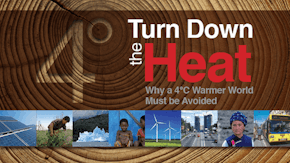Some recent developments reported locally:
Integrated approach to tackle climate change (Guyana Chronicle)
"The need for closer collaboration between agencies here in addressing climate change was raised on Thursday as the Caribbean Community Climate Change Centre (CCCCC) and the United States Agency for International Development (USAID) commenced a two-day stakeholder engagement in Georgetown.
..provision will be made through the Climate Change Adaptation Programme (CCAP), which will be implemented in several Caribbean countries, including Guyana."
Guyana to participate in Climate Change & ACTO Meetings (GINA)
"Guyana will participate in fourth board meeting of Japan Caribbean Climate Change Partnership Project (JCCCP) at the invitation of the United Nations Development Programme (UNDP) which will be held in Jamaica from February 1- 2 2017."
So why is climate change so important to Guyana? We need to pay more attention to this issue so here are a few things which come to mind:
- it is causing sea-level rise which will become a critical issue for obvious reasons, eventually much of our best farm land will be lost plus our capital
- the slowly rising temperature will have very serious effects in the future, agriculture will have to adapt
- there is a global shift away from using oil which has important implications
- we need to shift our energy sector (and transportation) away from fossil fuels to hydro and solar.








